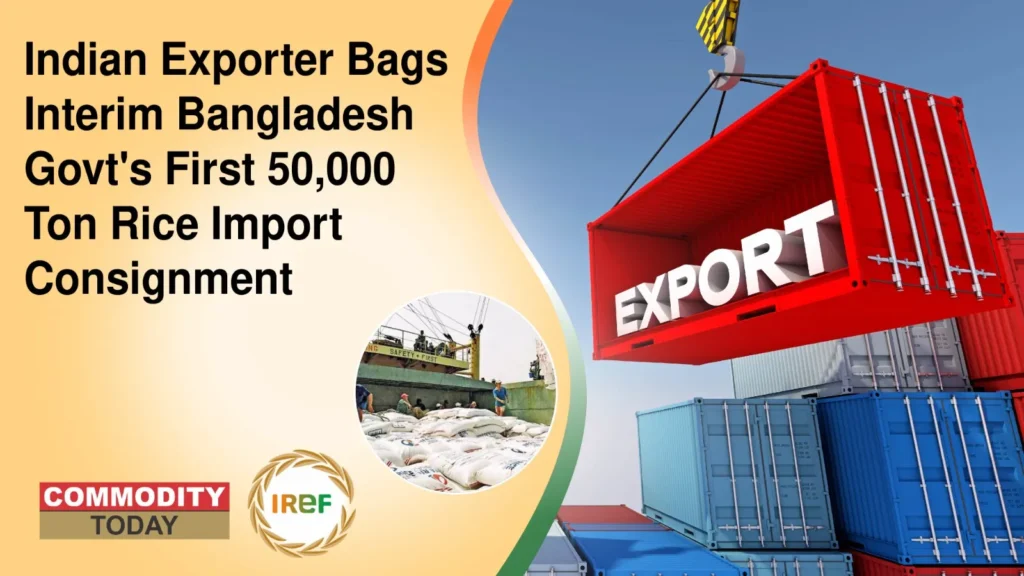In the series of Latest developments from Bangladesh rice imports, a Raipur-based firm has bagged the first 50,000-tonne rice import consignment. A senior official of the company informed that an Indian exporter company named Bagadiya Brothers Pvt Ltd of Chhattisgarh secured the order at USD 359.77 per tonne, as shown in the tender opening sheet.
An aggregate of 9 lakh tonnes of rice import- announced by Bangladesh
On Monday, Rahul Khaitan, director of Jai Baba Bakreswar Rice Mill, stated that Interim Bangladesh Government’s first international tender bids were opened for 50,000 tonnes of rice import. Furthermore, he said that two West Bengal-based Indian exporters, including his firm, had participated in the tender, adding that Bangladesh’s direct rice procurement goal is 4 lakh tonnes, and many consignments are likely to arrive soon. West Bengal’s rice mills and exporters are anticipated to benefit from the upcoming consignments. The neighbouring country has announced an aggregate of 9 lakh tonnes, of which 5 lakh tonnes were allocated to private importers, and now the private exports have already been initiated.
Around 1.5 lakh tonnes of Private exports completed so far
Khaitan informed that nearly 1.5 lakh tonnes of private exports have been completed till now. He added: “West Bengal’s exporters have bagged a significant share of these orders.” Surprisingly, popular rice varieties like Swarna, Ratna, Miniket, and Sona Masoori have witnessed a price rise since Bangladesh announced its rice import. As per reports, Bangladesh has expanded its food-friendly programme to 55 lakh families, offering 30 kg of rice per month at TK 15 per kg during August, September, October, November, February, and March.
Notably, Visakhapatnam and Paradip ports are the key gateways for India’s rice exports.
At the same time, India has built a Non-Basmati Rice Development Fund. The body will focus on the efficient utilization of government resources for the promotion of non-basmati rice exports, offer strategic policy recommendations to improve India’s global competitiveness, and foster greater synergy among the government, APEDA, and industry.



